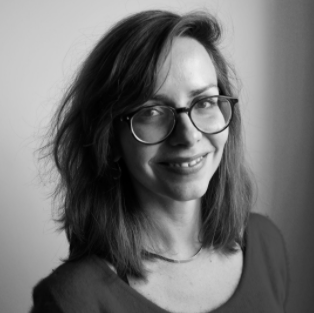On April 29th, 2022, the Oral History Lab had the pleasure of welcoming Caroline Gil Rodríguez who conducted an incredible workshop on the basics and fundamentals of digital preservation. In her workshop, Rodríguez discussed what digital files were, the different types of files that can be found in digital collections, and how to navigate the risks and differences between proprietary formats and open codes/sources. She also taught us how to collect, see, and interpret the technical metadata of a file, and went over the different techniques for managing, describing, and monitoring a collection of digital objects.

Caroline Gil Rodríguez is a curator of audiovisual materials, archivist and author. She has experience in a diverse range of contexts, having worked with museums and other cultural entities, artists, art collectors, and non-profit organizations. Some of her areas of interest are electronic art conservation, software-based art, digital preservation systems, and collectivism. She has two master’s degrees, one in Archive and Preservation of Moving Images and another in Cinematography and Film Production, as well as a bachelor’s degree in Visual Arts and a minor in photography. Caroline currently holds the position of Director of Preservation & Media Collections at the non-profit organization Electronic Arts Intermix and teaches at New York University.
If you missed this event and want to learn more about digital collections and how to assess them, you can still watch Rodríguez’s workshop below. This activity was conducted in Spanish.
The Oral History Lab would like to thank the National Endowment for the Humanities for helping make this event possible with funding from the “Listening to Puerto Rico: The Promise of Oral History On-Campus and Beyond” grant.
To view a full description of this activity, please visit https://uprm.libcal.com/calendar/cedibi/preservacion_digital?fbclid=IwAR011HVwJa1yWCjvB9kjGdXTUIOoW1gwbjwqrzioYNsk8CnHxZagVKfe5WU.
Any views, findings, conclusions, or recommendations expressed in this workshop, do not necessarily represent those of the National Endowment for the Humanities.
El 29 de abril de 2022, el Laboratorio de Historia Oral tuvo el placer de recibir a Caroline Gil Rodríguez, quien llevó a cabo un increíble taller sobre los fundamentos básicos de la preservación digital. En su taller, Rodríguez discutió qué son los archivos digitales, los diferentes tipos de archivos que se pueden encontrar en colecciones digitales y cómo navegar los riesgos y diferencias entre formatos propietarios y códigos/fuentes abiertos. También nos enseñó cómo recolectar, ver e interpretar los metadatos técnicos de un archivo, y repasó las diferentes técnicas para administrar, describir y monitorear una colección de objetos digitales.

Caroline Gil Rodríguez es una curadora de materiales audiovisuales, archivista y autora. Tiene experiencia en una amplia gama de contextos, habiendo trabajado con museos y otras entidades culturales, artistas, coleccionistas de arte y organizaciones sin fines de lucro. Algunas de sus áreas de interés incluyen la conservación del arte electrónico, el arte basado en software, los sistemas de preservación digital y el colectivismo. Tiene dos maestrías, una en Archivo y Preservación de Imágenes en Movimiento y otra en Cinematografía y Producción de Películas, así como una licenciatura en Artes Visuales y un minor en fotografía. Caroline actualmente ocupa el cargo de Directora de Preservación & Colecciones de Medios en la organización sin fines de lucro Electronic Arts Intermix y enseña en la Universidad de Nueva York.
Si te perdiste este evento y deseas aprender más sobre colecciones digitales y cómo evaluarlas, todavía puedes ver el taller de Rodríguez a continuación. Esta actividad se realizó en español.
El Laboratorio de Historia Oral desea agradecer al National Endowment for the Humanities por ayudar a hacer posible este evento con fondos del grant “Listening to Puerto Rico: The Promise of Oral History On-Campus and Beyond”.
Para ver una descripción completa de esta actividad, por favor visita el siguiente enlace:
Cualquier opinión, hallazgo, conclusión o recomendación expresada en este taller, no necesariamente representan las del National Endowment for the Humanities.


